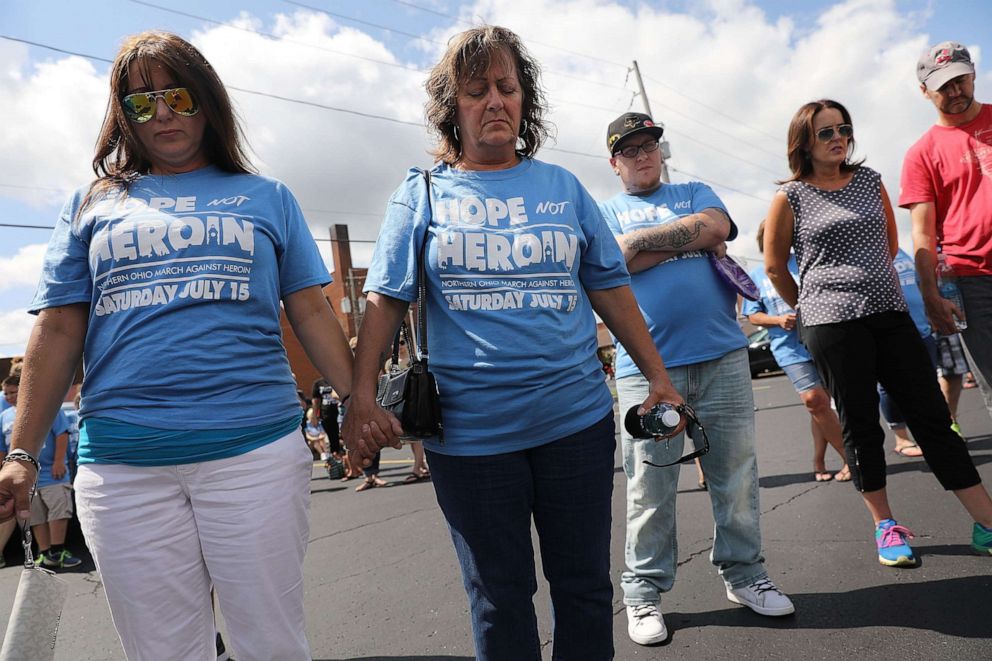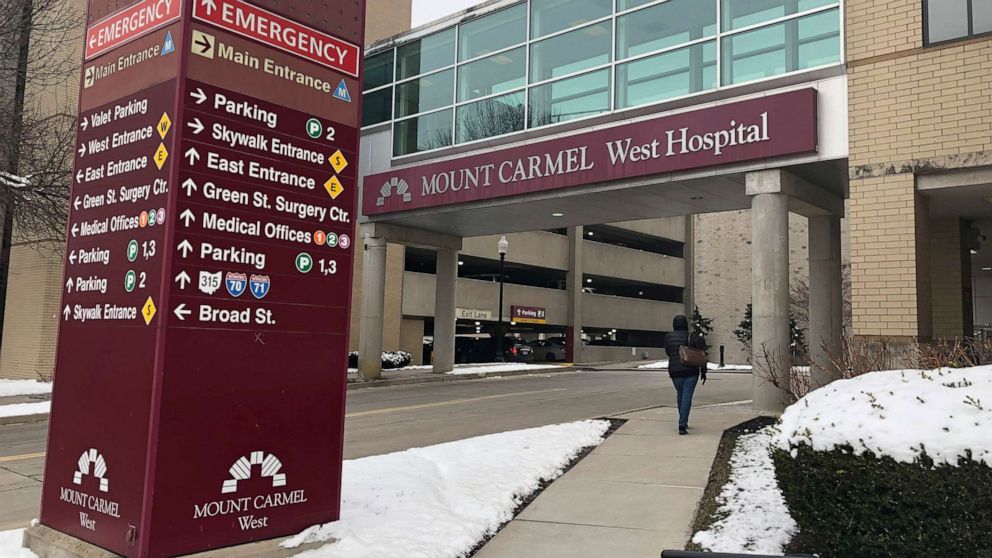Ohio county may need a second morgue to handle drug overdose deaths, coroner says
Drug overdose deaths are reaching record highs in Ohio’s most populous county, straining resources, forcing hospitals to hold on to the dead and pushing the coroner’s office to consider opening a second morgue, the Franklin County coroner said.
Between Jan. 31 and Feb. 9, Franklin County has experienced almost 30 deaths due to suspected opioid overdoses, Dr. Anahi Ortiz, the county coroner, told ABC News. The figure includes 10 overdose deaths on one day.

While other Ohio counties have seen a decrease in overdose deaths, Franklin County has not. Between 2018 and 2019, the county, which includes the majority of Columbus metropolitan area, saw a 10 percent increase in overdose deaths.
Ortiz believes the increased use of fentanyl is behind the rise.

“About 75 to 80 percent of our overdose deaths involve fentanyl or a fentanyl analog,” she said.
“Fentanyl has just gotten into everything. We're seeing fentanyl in cocaine, fentanyl in methamphetamine, we've seen black market oxy with fentanyl in it. It's just everywhere,” she added.
The county has struggled to find the resources for the increase of deaths. “Our folks are tired,” Ortiz said. “It’s straining our capacity.”
“We've had to switch the freezer over to a cooler in order to accommodate more [dead bodies] in our facility. And we have several times been to the point where we're thinking of calling for a temporary morgue,” she added.
The coroner’s office has also asked hospitals to hold on to bodies while the office continues to process overdose victims. “If someone dies at a hospital, we've had to ask hospitals to hold on until we have spots open,” Ortiz said.
Over the last decade, many states have been gripped by the opioid crisis. According to the National Institute on Drug Abuse, more than 130 people die in the U.S. each day after overdosing on opioids.
While the Centers for Disease Control and Prevention reported that overdose deaths were down more than 4% last year, overdoses involving synthetic opioids like fentanyl increased by nearly 10 percent.
The total amount of opioid deaths has also carried a significant human toll.
“Internally, it's taking a physical and emotional toll on everyone. We are working on trying to get a counselor who is experienced in social work and trauma to come in to hold sessions for the staff on a regular basis,” Ortiz said.
But the community is reeling and Ortiz has seen the pain.
“I see [families’] frustration," she said. "I read about their frustration. I read about their angst. I'm constantly reading about this one's son and that one's daughter. It’s a lot of frustration and you know, just despair.”
ABC News' Tom Shine contributed to this report.




